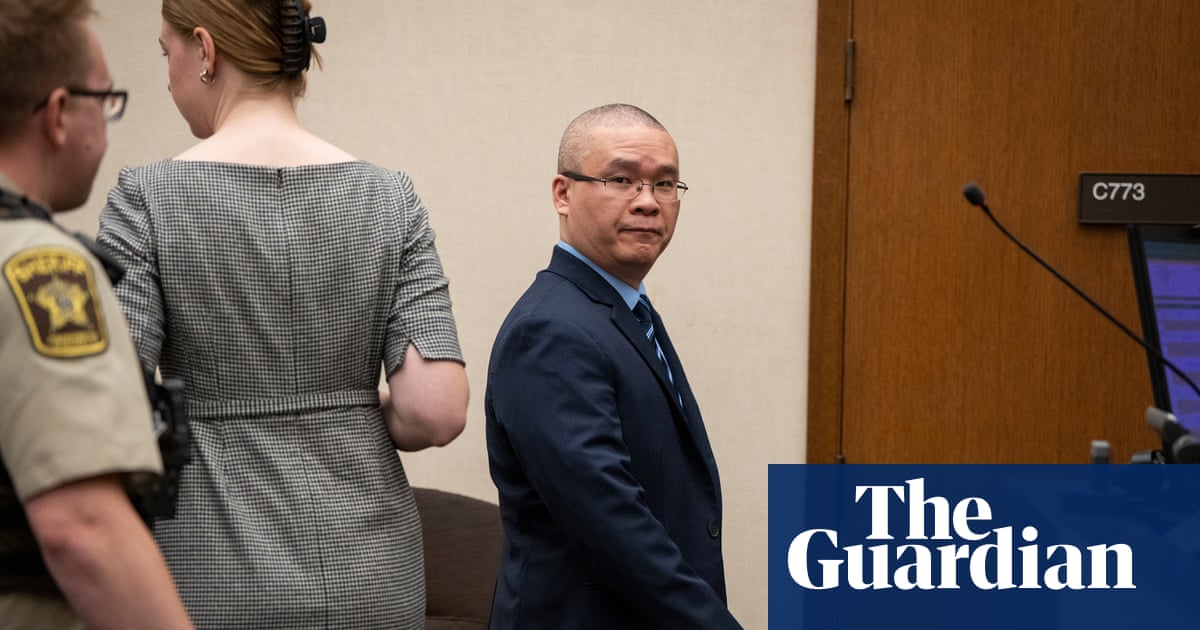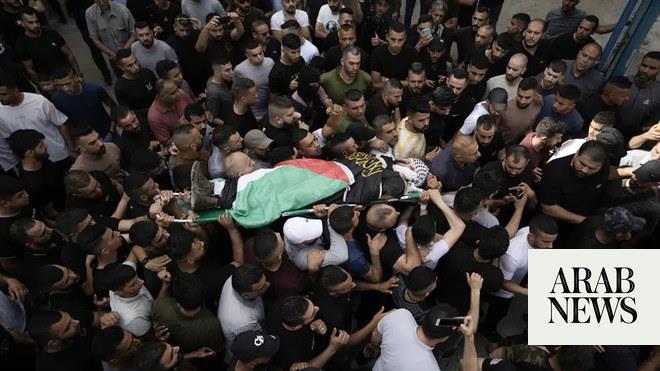
The cashier who served George Floyd in a Minneapolis store immediately before his arrest and death last May told a court on Wednesday of the “disbelief and guilt” he felt for allowing Floyd to pay with a suspected fake $20 bill when he later saw the police kneeling on him.
Testimony on the third day of former Minneapolis police officer Derek Chauvin’s murder trial continued in an atmosphere of tense emotions and harrowing evidence about Floyd’s death.
The cashier, Christopher Martin, 19, said Floyd appeared to be high on drugs but was not threatening and was “very approachable, talkative”.
Martin said he noticed Floyd because “he was a big man” and that they had a long conversation about sport.
He did tell the court in Minneapolis, however, that he noticed the 46-year-old Black man’s speech was laboured.
“It would appear that he was high,” he said.
Martin worked at Cup Foods in south Minneapolis, where Floyd is alleged to have tried to buy cigarettes with a counterfeit $20 bill, which led to his detention by Chauvin, who was later fired from his job and arrested.
Chauvin, 45, who is white, has denied charges of second – and third – degree murder, and manslaughter, after he pressed his knee into Floyd’s neck for more than nine minutes on 25 May 2020, the Memorial Day holiday.
He faces up to 40 years in prison if convicted of the most serious charge.
Floyd’s official autopsy showed that he had opioids and methamphetamine in his system when he died.
Chauvin’s defence contends that the officer’s use of force was reasonable because Floyd was under the influence of drugs at the time of his detention. Eric Nelson, Chauvin’s lawyer, has also told the trial that the drugs contributed to Floyd’s death.
The prosecution acknowledges the use of drugs but has said that it neither justified Chauvin continuing to press his knee into Floyd’s neck as the prone man repeatedly said he could not breathe nor was a cause of his death.
The trial was shown video of Floyd in the shop. He can be seen wandering around for several minutes, appearing to stagger at times, before making his way to the tobacco counter where Martin was serving. Floyd buys cigarettes and pays with a $20 bill.
Martin said that he was immediately suspicious of the note because it had an unusual pigment but accepted it anyway even though he knew it would be deducted from his pay.
“I thought George didn’t really know it was a fake bill so I was doing him a favour,” he said.
But Martin had a change of heart and showed the note to a manager who said to go after Floyd and bring him back in to the store.
Throughout the video, Floyd does not appear threatening. Although there is no audio, at times he appears to be joking with other customers.
“He seemed very friendly, approachable, talkative,” said Martin. “But he did seem high.”
The trial was then shown footage of Martin and a co-worker approaching Floyd as he sits in his vehicle and telling him he needed to come back to the store and speak to the manager about counterfeit money.
When Floyd twice refuses, the police are called. Martin went back to work but returned outside after noticing a crowd gathering on the street.
“I saw people yelling and screaming. I saw Derek [Chauvin] with his knee on Floyd’s neck,” he said. “George was motionless. Chauvin seemed like he was in a resting state, meaning he was resting his knee on his neck.”
Later in the footage, Martin is seen watching events with his hands on his head. The prosecutor asked what he was thinking.
“Disbelief and guilt,” he said. “If I would have just not taken the [counterfeit] bill, this could have been avoided.”
Martin said that not long afterwards he quit his job at Cup Foods because he “did not feel safe”.
Later on Wednesday, another prosecution witness, Charles MacMillian, told the court that he spoke directly to Floyd as he lay in the street under Chauvin’s knee.
“Get up and get in the (police) car. You can’t win man,” he said to Floyd.
Floyd responds that he cannot get up.
MacMillian, in highly emotional testimony, said he appealed to Floyd to cooperate with the police because he was worried about his condition as he was pleading that he could not breathe. “I was trying to help him,” he said.
MacMillian broke down and wept in court as he was shown video of his interaction with Floyd.
Earlier, the defence continued its cross examination of Genevieve Hansen, a Minneapolis firefighter who was prevented by the police from offering medical assistance to Floyd as he was dying, after coming across the scene while she was off duty and seeing Chauvin and two other police officers pinning Floyd to the street.
Hansen acknowledged that she did not show identification proving she was a firefighter with medical training as she pleaded with Chauvin and other police officers to let her treat Floyd because she thought his life was in danger.
Earlier, Nelson put it to Hansen that she “got louder and more frustrated and upset” as Chauvin continued to press his knee into Floyd’s neck.
The firefighter responded that she did not become angry until Floyd was already dead “and there was no point in trying to reason with them any more because they had just killed somebody”.
When the defence pressed Hansen to agree that other people in the crowd were “upset or angry”, Hansen shot back: “I don’t know if you’ve seen anybody be killed, but it’s quite upsetting.”
The prosecution is building a picture of a group of police officers, led by Chauvin, who were indifferent to Floyd’s suffering and the danger he was in over an agonizing period of time and that his restraint was not a result of split-second decision-making.
A succession of prosecution witnesses has told the court that the alarm and anger of bystanders was not a threat to the police but a demand for action to help Floyd as he begged for his life and called out for his dead mother with waning pleas.
The jury were shown several videos recorded by people at the scene in which members of the public can be heard loudly remonstrating with Chauvin to get off Floyd’s neck. But the video did not show any threats made to the safety of officers.
Three other officers involved in Floyd’s death are scheduled to be tried together later this year on charges of aiding and abetting murder and manslaughter.
The trial continues.












